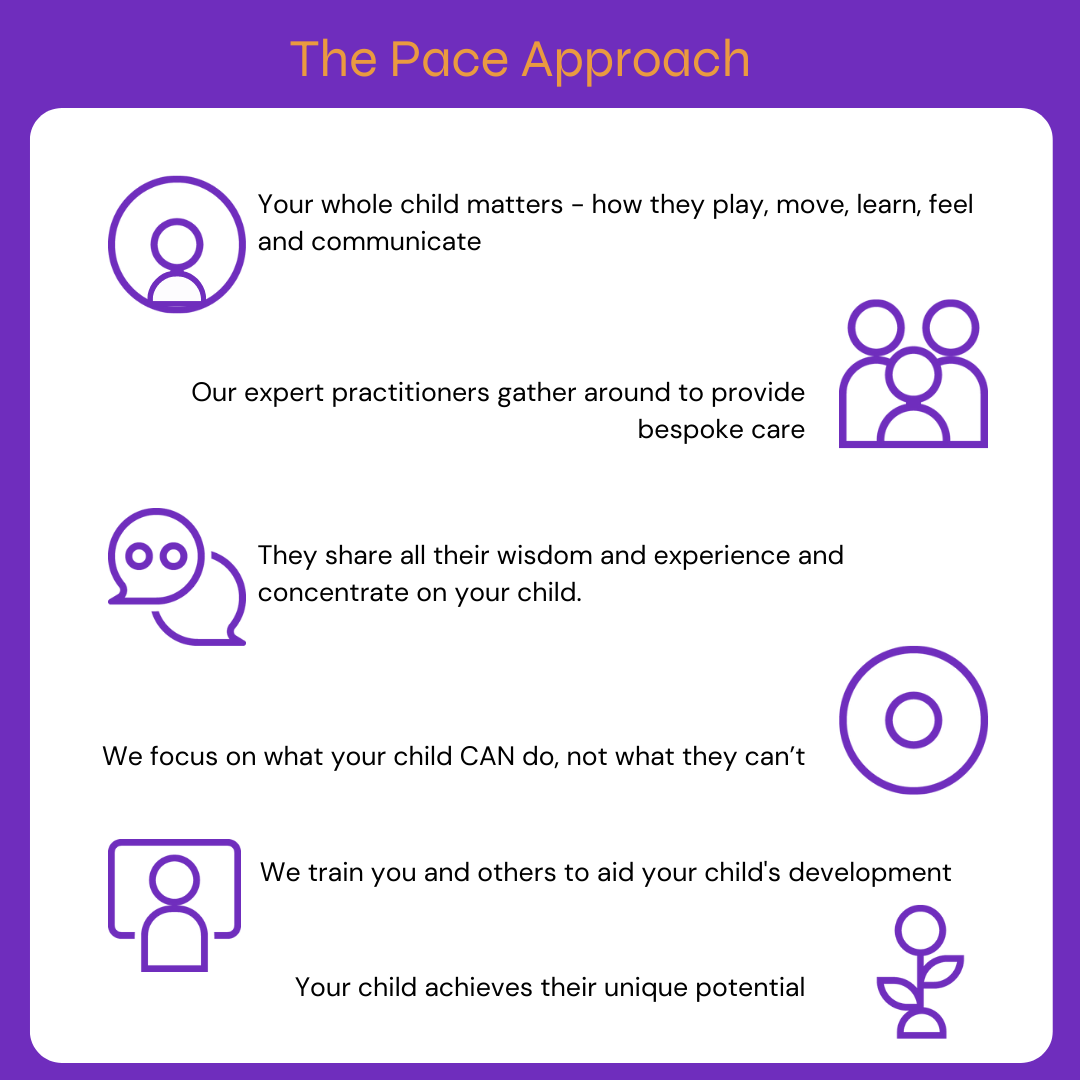Our family-centred approach
The Pace approach

The Pace approach
Our expert therapists gather around your child to develop all these areas.
Practitioners team up to share expertise and collaborate for the best outcomes. We encourage open communication, among our team and with you. Pace therapists may also liaise with education professionals and healthcare practitioners.
Your child will receive unique care, just right for their needs.
We are experts in a range of specialist therapy approaches. We can offer:
Sensory integration therapy
This helps your child cope with their difficulties in processing sensory input.
SDR rehab
Selective Dorsal Rhizotomy (SDR) is a surgical procedure to help to reduce muscle stiffness in children with cerebral palsy.
Constraint-Induced Manual Therapy
This is a technique that aims to improve mobility of a limb by restraining an unaffected limb.
Bimanual therapy
This helps children with cerebral palsy learn to use both hands together to complete everyday tasks.
Attachment sensory integration
This is about supporting your child to overcome learned behaviours which have been established in response to trauma.
Sensory feeding and eating
We can support your child to overcome food aversion caused by sensory input like taste, texture and smell.
Dysphagia support
We can support children who are struggling with swallowing.
Alternative Augmentative Communication (AAC)
These are systems and devices that can aid your child’s communication.
Assistive Technology
Also known as AT, this is a general term for any item, software or piece of equipment that can help your child.
Circle of security
We support you and your child to develop strong, secure relationships.
And many other specialisms . . .
Contact us to find out how we can support you and your child.
